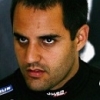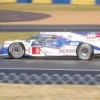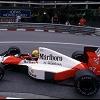A lot of people here are taking wrong conclusions from those stats. Where's what I think:
- The introduction of refuelling in 1994 might not have helped passing, but it can't possibly be the main reason for the problem. There was a dramatic constant downhill trend since the beginning of the analysed data until 1996. Ever since it's stayed relatively constant. 1994 was one of the biggest drops, but only a part of the trend which was always downhill. The big issue wasn't a suddenly introduced rule change, but rather something subtler. That would be the constant improvements in aerodynamics (the BIG BIG issue), and then the constant improvements in the professionalism of the teams and drivers involved.
- I'm absolutely sure that lapped cars isn't a part of the numbers. Look at the tables. Monaco 2003 shows up there as the race without a single pass. Yet at least 5 cars were lapped there. The decrease in passes is VERY real and not just a product of rose tinted glasses or flawed statistics. However, and rather surprisingly to me, things have remained pretty much the same since 1996, give or take small variances from year to year. You know what this means? The winglets, the narrow cars, the grooved tyres were never as much of a problem as we thought.
- I don't believe the prohibition of electronic driving aids makes any difference in terms of passing. They became increasingly popular in the period of 1989-1993 and the passes were going down big big time. To be fair, it kept going down big time even after they were banned. Can't see any relevant difference in the 2007 to 2008 numbers neither (when TC was banned again).
- The aero changes for this year was a failure, if anything the numbers have gone slightly downhill. I believe Ogami Musashi disagrees with me here, but I also believe the reason of the misunderstanding is mostly semantics. Yeah I know cars can follow each other closely now, and apparently that was the only thing the OWG wanted to do or something. But hey, a f***ing fortune was invested in these changes. I can't see how it's any justified to spend that much for the actual number of passes to remain the same, or even slightly worse as it seems. It's all went spectacularly wrong.
- On brakes I tend to side with Ogami Musashi here. I don't think that is the issue at all, if anything most of the passes we see are crazy last minute bonzai braking moves. What we actually need is many more slipstreaming passes. And here again the problem is subtle, because the cars can actually slipstream each others beautifully well (until they hit the rev limiter), we've seen this occasionally. The problem is in getting close enough after a corner to begin the slipstream! But these points here are just my opinion based on watching the races rather than looking at the stats.
- I also think the current tracks aren't the problem, AT ALL. Ffs just look at the Detroit and Phoenix numbers. How were those mickey mouse tracks any better for passing than Singapore? Yet the numbers are much much better because they raced there in the mid 80s, and not with these super aero sensitive bitches.
- I'm all up for a big badass F1 version of the 2005/2006/2007 GP2 car. That little beast was f***ing awesome to watch.
Edited by paranoik0, 27 September 2009 - 22:50.





























